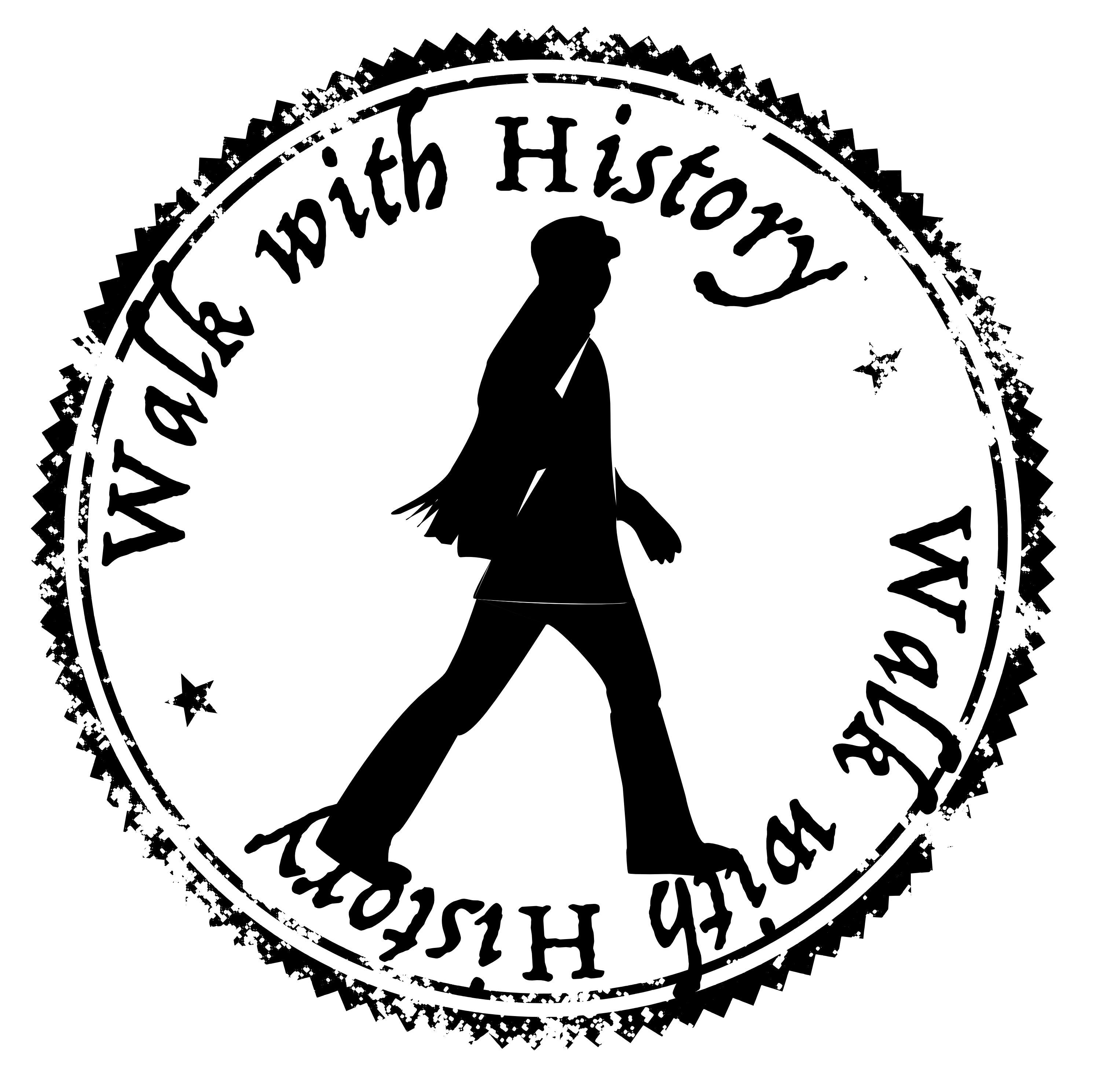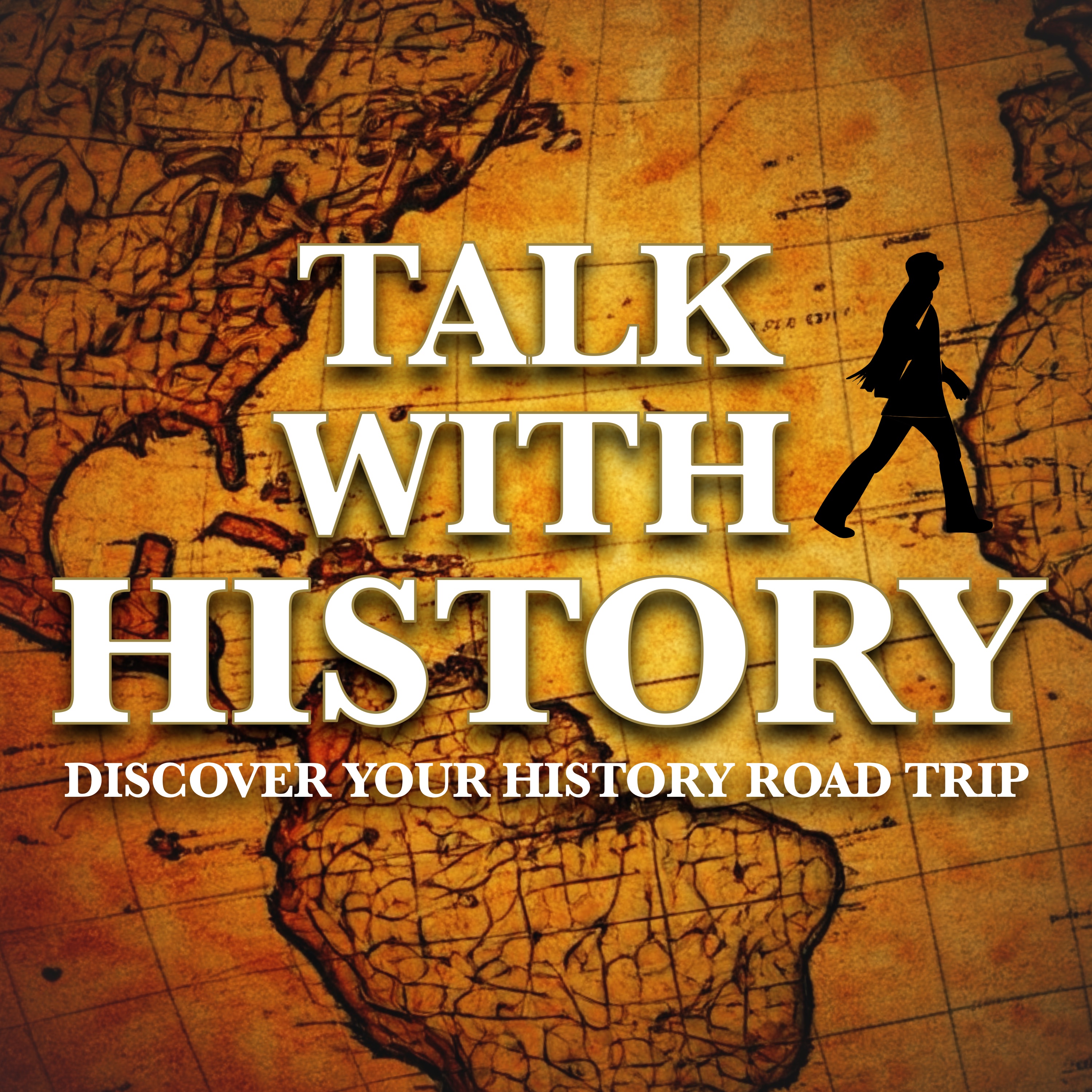History of Beale Street: Cradle of the Blues
➡️ Help history. 2 minutes for 7 questions 🫡
Join us on a journey through Beale Street in Memphis, Tennessee, the birthplace of the blues and a historical epicenter for African American culture. Discover how this legendary street evolved from a 19th-century commercial hub into a vibrant community rich with music, commerce, and social change. Learn about influential figures like Robert Church, Ida B. Wells, WC Handy, and BB King who made their mark on Beale Street. Hosted by Scott and historian Jen, this episode dives deep into the compelling history and lasting legacy of one of America’s most iconic streets. Don't miss out on this fascinating exploration!
00:00 Introduction to Beale Street
02:19 Beale Street's Historical Significance
03:06 The Birth of the Blues
06:30 Robert Church and Post-Civil War Transformation
08:38 Modern-Day Beale Street
09:49 Civil Rights and Cultural Impact
12:13 Tourist Attractions and Recommendations
18:18 Legacy of Beale Street
🎥 Video version of this podcast
💬 Comment on this episode here
-------------------------------------------------------
⬇️ Help us keep the show going and explore history with us! ⬇️
🧳 Plus...get free travel resources in your inbox.
-------------------------------------------------------
📧 contact: talkwithhistory@gmail.com
Talk with History is a global Top 40 History podcast on Feedspot!
Transcript
Today, we're taking a journey to a legendary street in the heart of Memphis, Tennessee, a place where the very soul of American music was forged, where history echoes in every note, and where a community built a vibrant culture against all odds.
ngs as a commercial Avenue in:We'll explore how formerly enslaved individuals like Robert Church laid the groundwork for prosperity, how civil rights pioneers like Ida B. Wells fought for justice on its very sidewalks, and how figures like W.C. handy and a young B.B.
king gave voice to a new musical genre that would captivate the world.
Join us as we step back in time to uncover the compelling, sometimes tumultuous but always vibrant history of Beale Street, a place that truly earned its title as the home of the Blues. I want to bring you through the welcome talk with History. I'm your host, Scott, here with my wife and historian, Jen.
Jenn:Hello.
Scott:On this podcast, we give you insights to our history Inspired World Travels YouTube channel Journey and examine history through deeper conversations with the curious, the explorers, and the history lovers out there. Now, Jen, we are doing some history in our very in our own backyard.
So funny enough, I was kind of working with some online tools and the idea of the history of Beale street kind of just came up and I was like, hey, you know what? We can do a couple videos in a day and find some local stuff, because here in the Memphis, Tennessee area, there is a lot of local history.
So we're going to talk about Beale Street.
Jenn:Yeah. And we have visited there often. When we first moved to Memphis about eight years ago, it was one of our first date nights.
We went down there and just explored the area. And so Beale street is this street in Memphis. It's a famous street.
It's on the national register of historic places from the 60s, but it's what they consider the home of the blues.
Now on this channel, if you're friends of this channel, you know, we talk about the birth of the blues, where the blues started, where it kind of came from, and we tell you how it's. They don't really pinpoint any certain time or person because those records weren't really kept.
But home of the Blues, because this was a place where blues found its mainstream attention in a mainstream city of Tennessee, it had a lot of attention. It got a lot of FaceTime with people. And so that's why they call it the home of the blues.
So they always say New New Orleans has jazz, Memphis has the blues. And. And it's been inspirational for a lot of different people. You've heard that song Walking in Memphis. He talks about my feet 10ft off of Beal.
He's talking about Beale Street. It was inspirational to Elvis Presley, of course, if you Elvis movie, he was at the juke joints down on Beale Street.
It's been inspirational to W.C. handy, who wrote Beale Street Blues. So he was a blues trumpeter and he wrote a whole song based on this, which is really where it got most of its fame. But B.B.
king was pretty famous down on Beale Street. Now there is a juke joint or a blues bar named for him. And the street that runs through there that kind of intersects Field street is called BB King.
So what's neat about this street in Memphis is it is attached to a lot of the other famous things in Memphis. So the FedEx form with a Memphis Grizzlies play is right off of Beale Street. And we've seen headliners there.
We saw Garth Brooks there, we saw Justin Timberlake there, like. So that is our big performance auditorium here in Memphis. We have a theatrical auditorium, the. The Orpheum, which is also right off of Beale Street.
And that's where we've seen like musicals and things like that. When they filmed Walk the Line, that's the very end of the movie.
Scott:Yeah, the Johnny Cash movie.
Jenn:Yeah. That Joaquin Phoenix and Reese Witherspoon are at that Orpheum in Memphis, Tennessee, on that stage.
Scott:Yeah. Now that's a satellite level, you know, of Beale Street.
but for beale Avenue. Right.: Jenn:Yeah.
Scott:And let's. Let's talk about kind of how it came to be.
Jenn: ale street, you have to think: Scott:Yeah, it's not.
Jenn:Right. Because this is pre Civil War, it's commerce. This is downtown Memphis. This is a white neighborhood.
ld samples from California in: Scott:That's right. Yeah. You were talking about that. I thought that as a Californian, I thought that was really neat.
Jenn: 's what starts the Gold Rush,:So you can imagine this is a white area, and this is where it's going to be trade goods shops. Anybody who's taken the riverboats down Memphis, this is where they would dock and stop right on Beale Street.
Scott:And you have to remember, right, if.
If you're not familiar, if you're listening to the podcast and you're not familiar with the Memphis area or, you know, west Tennessee and everything like that, we're, you know, it's right on the Mississippi. So that massive commerce area, cotton is huge here. All sorts of commerce is going up and down the Mississippi. And Memphis is a huge port.
So if you think about at the time, like you said, a lot of money is coming through here.
Jenn: demic. And that happens about:We have a couple big ones, but that was the biggest. And it was so big that it wiped out almost more than half the city. And so Memphis lost its charter as a city.
So Beale street was pretty much abandoned. It's hard to believe, but that's true.
And there was a black man named Robert Church who decided to buy up all of the land around Beale street because it was cheap. No one was there. The city had lost its charter. And he thought, if it ever comes back, this will be worth some money.
Scott:Now, when you say losses, charter, losses charter. Because so many people left and. Or died.
Jenn:Yeah.
Scott:There's no more from yellow fever, the population. And if I remember reading about Robert Church, he was a former enslaved. Who was he freed after the Civil.
Jenn:War, was freed at the Civil War, and he becomes the first black millionaire in the South.
Scott:Wow.
Jenn:Because of why he buys all this property on Beale street.
So as:Now this is when it becomes juke joins and very influential in the music industry. It's still a lot of commerce there and, and shops.
you're going to hit about the: ts its, its insurgents in the: Scott:And it's neat too, because if you, if you ever get a chance to come to Memphis, we always tell people to go check out Beale Street. There'll be comments online. Sometimes, like when we post this video and we, and people will comment, be like, oh, you know, Memphis is a.
Is a dumpster fire and it's super dangerous. I don't actually think so. Because if you stay in the main areas and you don't go late at night, you're going to be just fine.
Jenn:We've never had an issue.
Scott:We've never had an. Never had an issue. So Beale Street's very safe. Right. You're out there, there's cops there all the time.
They do all sorts of festivals and stuff like that. But on Beale street, talking about those, those blues pioneers is they have like a little kind of Walk of Fame.
And so they have a little music symbol with their name on it. And you'll see names as big as Elvis. Right. Because Elvis went down there a lot in the 50s. But BB King, Debbie Handy, Isaac Hayes. Yeah.
So a lot of these big names have, have a music note on kind of like what, what I would call the Walk of Fame on, On Beale street was really neat.
Jenn:Yeah. So the birth of the blues.
They have a statue to W.C. handy because he writes that Beale Street Blues song and he's a trumpeter and that was very famous at the time. So it is an area where so much influence is happening, especially in the African American community. And Ida B.
anti lynching campaign in, in:And so now there's a statue to her out there. There's a marker that commemorates her. When you think of Women's History Month, it's Ida B. Wells is always there.
I always say people know who, but people don't know why.
Scott:Yeah.
Jenn:And so why Ida B. Wells, she's from Memphis. Her best friend is lynched and killed.
So she starts to write about all this injustice to black men and the lynching culture. She's writing it out of the, this African American church on Beale Street.
Robert Church has bought a lot of the area around that church made an auditorium there. It was called Church Park Auditorium. It could hold 2,000 people. And it was a major attraction.
You have Woodrow Wilson will speak there, Booker T. Washington, Franklin Delano Roosevelt. So that area of Beale, it's just so historic for the city. And you can still feel that influence today as you walk down the street.
Scott:Yeah. And one of the things that I've learned a lot about historic figures like Ida B. Wells. Right. She's considered a co. Found. Co founder of the naacp.
So she was an early spark in kind of some. I would want to say kind of legal action, but like movements against really bringing light too. That was kind of.
ight. And that's. I mean, pre: t into the flame that was the: Jenn:Yeah. And you can think like this is really like a heart of the African American culture because of what it. What it means to Memphis.
But because of church had bought up all of this area and then started to develop it and. And was selling it to African Americans. Entrepreneurs like this really became the epicenter of African American culture.
There's so much change and development that happens there. I always. When we go there, there's a couple places we always tell people to go. We tell. We go to Blue City Cafe. We love to eat there.
They have gumbo cheese fries that are amazing. It's from the movie the Firm. That's where Tom Cruise gets questioned about the lawyers dying in his room.
Scott:Is it Ed Harris?
Jenn:Ed Harris.
Scott:Ed Harris is like kind of talking to him at lunchtime or something.
Jenn:Yes. And then if you walk down the street, they have Schwab. It's kind of like Schwab's ice cream parlor store.
That is the oldest business that still is open on Beal. And it's a great place to get souvenirs. They have a little ice cream parlor in there.
Scott:1876.
Jenn:Yes. And they have a lot of cool history in there.
But one of the things I always tell people to do is on the second floor they have the side by side drinking fountains. And they're not labeled or anything like they were during segregation where they would say colored and white.
But they are there for you to see what that looked like. Two exactly the same drinking fountains right beside each other.
Scott:And it's neat too. Just off to the side of that, they kind of have like a history of. I think it's a Schwab is. Is the. The name of the. The store.
all the way back to the late:So you want to talk about literally walking through some place, some business, some. Some building that's been around for 150 plus years, that's the place to go.
Jenn:Yeah. Even though this was a predominantly African American area doesn't mean segregation wasn't still a part of their everyday life.
And this is downtown Memphis still. So you still have the Orium and there's some movie theaters. The Daisy that was down there. Again, all of these places are segregated.
One of the other cool things, I think on Beale street is the Earnsweithers Museum. And he was photographer that took a lot of photographs during the civil rights movement.
You have Elvis Presley, you have Martin Luther King, he took pictures of Emmett Till. And his photographs are in this museum that you can go around and walk around.
I actually bought one of them because it was so inspirational to me and my work. But it's a very neat museum to go in and walk around and see all of his photographs.
But it's one of those places again, it's shut down, so cars can't drive it and you can walk it and you can walk right in the middle of the street. And it's just one of those places that it really is like the heartbeat, the vein of America, American history through Beale Street.
So I always recommend if people come to visit Memphis, it's a place you have to go and see and experience for yourself. Another thing is at night, they have the neon lights down Memphis, and it's really neat. They have what they call the Memphis Flyers.
Scott:Yeah, it's the Beale Street Flyers.
Jenn:The Beale Street Flyers. So if you again saw the firm and the boys who do the flips down the street, they're still there and they do that. And again, it's.
It's for, you know, people who leave money for them and stuff, but they do all the flips and things that like.
Scott:Like that they. The Beale Street Flyers have like a Facebook page and they actually have a manager.
Because I had thought about trying to make like a, like a little mini documentary about the Beale Street Flyers. And so I had looked into them a little bit, and these guys will perform, you know, at halftime shows for the Grizzlies.
So they actually travel around and perform a little bit now, but you can still catch them on Beale street in the evenings and they're doing backflips and they're flipping over people and they're incredibly talented. As a former gymnast, I'm relatively impressed as well.
Jenn:Yeah, it's super cool. And it's neat when the neon lights are going too.
th of:And again, it's not far from the Peabody, which is a. Another famous location in Memphis. So you can go to the Peabody, see the ducks, walk over to Be Street. Great places to eat on Beale Street.
Great music. They still have a lot of those juke joints.
Scott:B.B.
Jenn:King still plays Blue Y.
Scott:It's not far from Luran Motel. It's not far from the Pyramid, which is the giant bass pro shop, which everybody would probably know.
If you see the Memphis city skyline, if you Google Memphis, you'll see that with the. The bridge. So it's right around the corner from all of these spots. But it's. It's all in this kind of downtown, you know, central.
Central Memphis area. And it's right over the river. So you can see the river, you know, kind of basically from Beale street for the most part.
Jenn:Yeah, it's a, it's. And it's a very easy walk. Like, Beale street really is only 1.8 miles long, so 2 miles, if you're going to think the whole thing.
But really it's only a couple blocks when you think of all the commerce and stuff. But it's a major tourist attraction. I think everyone should see it and, and listen to the music that comes out of there.
It's a lot like Bourbon street where you can get an adult beverage and walk the street with it so you can have it outside walking. And it's just a really cool place to see and experience. And like I said, we've always felt safe there.
There's never been an issue for us on Beale street, so we definitely recommend it for anyone who wants to come to Memphis and visit. It's definitely a historic location. And you do feel like you're walking in history when you walk on Beale Street.
Scott:So it's fun to do local history because for us, right.
Obviously it's nice because it's close, but for those listening or watching, like shoot us a Note, you know, comment down below on some local history in your area, because that's one of the things that's kind of one of our missions of Walk with History and Talk with History is to encourage people to get out and go check out their. Their local history. So it's. It's a ton of fun. And if you come to Memphis, it's definitely one of the spots you need to go.
Jenn:Yeah. And. And it has a lot out there for everybody. Lansky Brothers, where Elvis Presley would buy his clothes. The real one is on Beale Street.
So it's kind of neat. It encompasses a lot of different history from Memphis.
And I definitely think it's one of those places that people want to get out and see for themselves and experience for themselves. But, yeah, it's there waiting for you. And super cool.
Scott:And that brings us to the end of our journey through the incredible history of Beale Street.
From its earliest days as a commercial hub to its rise as the undisputed home of the blues, Beale street has always been a testament to resilience, creativity, and the spirit of the Memphis community. It's a place where legends were made, where social change was fought for, and where the very notes of American music were written into history.
Next time you're in Memphis, take a stroll down Beale Street. You'll not only hear the music, but feel the echoes of every story we've shared today. This has been a Walk with History production.
Talk with History is created and hosted by me, Scott Benny. Episode researched by Jennifer Benny. Check out the show notes for links and references mentioned in this episode.
Talk with History is supported by our fans at the History Road Trip. Our eternal thanks go out to those providing funding to help keep us going.
Thank you to deberty, David Myers, Patrick Penny, Gale Cooper, Christy Coates, and Calvin Gifford. Make sure you hit that follow button in that podcast player and we'll talk to you next time.





